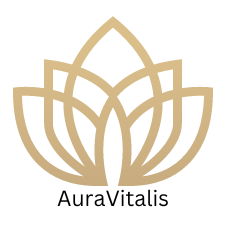
Stress and anxiety—two words that have become far too common in our everyday vocabulary. We hear them from friends, see them on social media, and feel them deep in our own bodies. If you’ve ever found yourself overwhelmed by these feelings, you’re not alone. But guess what? You can regain control with the help of some natural remedies to combat stress and anxiety fast.
These remedies have been my go-to tools whenever life throws a curveball. As someone who’s been on a personal journey to find peace and balance, I’ve tried just about everything. Today, I’m excited to share the top 5 natural remedies that have helped me find calm and clarity when I needed it most.
So grab a cup of tea, take a deep breath, and let’s dive in!
1. Breathe Your Way to Calm: Pranayama & Deep Breathing
It sounds almost too simple, right? “Just breathe!” But trust me—there’s a world of difference between the way we normally breathe (hello, shallow, rapid breaths!) and the intentional, deep breathing techniques known as pranayama.
Why It Works: Deep breathing sends signals to your brain that everything is okay, helping to activate the parasympathetic nervous system. This system is responsible for the ‘rest and digest’ state of mind, calming your heart rate and reducing cortisol (the stress hormone).
How to Do It:
- Find a comfortable seat: Sit cross-legged or on a chair with your feet firmly on the ground.
- Place one hand on your belly and one on your chest: This helps you become aware of your breath.
- Inhale deeply through your nose: Feel your belly expand as you count to four.
- Exhale slowly through your mouth: Make the exhale longer than the inhale (aim for a count of six to eight).
Repeat for five minutes, and notice how your mind starts to clear.
Personal Tip: I use this technique whenever I’m stuck in traffic or waiting for a meeting to start. It’s a game-changer. I remember a particular day, frantically running late to an event. By the time I sat down, I felt frazzled and out of sync. Just five minutes of deep breathing helped me reset and approach the day with a more relaxed, focused energy.
2. Nature’s Tranquilizers: Herbal Teas and Adaptogens
Herbs have been used for centuries as remedies to calm the mind and body. Some of my favorites are chamomile, lemon balm, and passionflower. These teas are like gentle hugs in a cup, soothing away stress with every sip.
Why It Works: Chamomile and lemon balm are known for their calming properties. They gently relax the nervous system, while adaptogens like ashwagandha help the body adapt to stress by balancing hormones.
How to Use:
- Chamomile & Lemon Balm Tea: Brew a cup in the evening to unwind before bed.
- Ashwagandha Supplement or Tea: Take it daily, preferably in the morning, for long-term stress support.
Personal Tip: I have a go-to “stress tea” blend that I always keep in my pantry: chamomile, lemon balm, and a sprinkle of lavender. It’s become a nightly ritual that signals the end of a busy day and the start of a peaceful evening. When I sip on this tea, it feels like I’m wrapping myself in a cozy blanket.
3. Move Your Body, Calm Your Mind: Gentle Yoga and Movement
We’ve all heard it: “Exercise is good for your mental health.” But when you’re dealing with stress and anxiety, it’s not always easy to hit the gym or go for a run. Enter gentle yoga and mindful movement!
Why It Works: Moving your body releases endorphins, the “feel-good” hormones. Gentle yoga postures, like child’s pose and cat-cow, also work to release tension stored in the body—often in the neck, shoulders, and hips.
How to Do It:
- Start with some simple, grounding poses like child’s pose, down dog, or seated forward fold.
- Incorporate mindful breathing as you move. This is where the magic happens!
Personal Tip: On those days when even the thought of a full yoga flow feels like too much, I start small. Sometimes I just lie on my back, bring my knees to my chest, and rock side to side. It’s a comforting motion that helps release lower back tension and eases my mind.
4. Aromatherapy Bliss: Essential Oils for Quick Stress Relief
Smell is a powerful sense. It’s directly connected to the brain’s limbic system, which controls emotions. That’s why certain scents can instantly transport us to a calm, happy place.
Why It Works: Essential oils like lavender, bergamot, and frankincense have been scientifically proven to reduce stress and anxiety. They work by triggering the brain to release serotonin, the “happy hormone.”
How to Use:
- Diffusion: Add a few drops of lavender or bergamot essential oil to a diffuser and let the calming aroma fill your space.
- Topical Application: Dilute a drop or two of lavender or frankincense with a carrier oil (like coconut oil) and apply to pulse points (wrists, neck) for instant calm.
Personal Tip: I keep a little roller bottle of lavender essential oil in my bag at all times. There was a time when I found myself unexpectedly overwhelmed at a social gathering. I excused myself, applied some lavender oil to my wrists, and just took a few breaths in the corner. It worked wonders! Within minutes, I felt more centered and ready to rejoin the conversation.
5. The Power of Presence: Mindfulness Meditation and Grounding Exercises
When you’re stuck in a cycle of anxious thoughts, it’s easy to get lost in the “what ifs” and “should haves.” Mindfulness meditation is like a gentle tether that pulls you back to the present moment.
Why It Works: Mindfulness teaches you to observe your thoughts without judgment, breaking the cycle of rumination. It helps you become aware of your body and surroundings, which can shift your focus away from anxious thoughts.
How to Do It:
- Find a quiet space: Sit comfortably with your back straight.
- Focus on your breath: Take slow, deep breaths.
- Notice the sensations in your body: Feel your feet on the ground, your hands resting on your thighs.
- Label your thoughts: As thoughts come up, mentally say “thinking” and gently bring your focus back to your breath.
Personal Tip: One time, I was in the midst of a particularly stressful week. I found myself clenching my jaw and holding my breath without even realizing it! A quick 5-minute mindfulness check-in helped me identify the tension I was carrying and consciously release it. I felt instantly lighter.
Final Thoughts
There’s no one-size-fits-all remedy for stress and anxiety, but having a toolkit of natural techniques can make a world of difference. Whether you choose to start with deep breathing, a calming tea, gentle yoga, aromatherapy, or mindfulness meditation, the key is consistency and compassion for yourself.
When stress and anxiety come knocking, remember: you have the power to change your state of mind and find your way back to calm.
Now it’s your turn. What’s your go-to natural remedy for managing stress? Share in the comments below—I’d love to hear!
